South Carolina's 5th congressional district
| South Carolina's 5th congressional district | |||
|---|---|---|---|
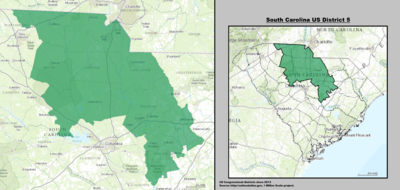 South Carolina's 5th congressional district - since January 3, 2013. | |||
| Representative |
| ||
| Population (2015) | 678,910 | ||
| Median household income | 44,685 | ||
| Ethnicity |
| ||
| Cook PVI | R+9[1] | ||
The 5th Congressional District of South Carolina is a congressional district in northern South Carolina bordering North Carolina. The district includes all of Cherokee, Chester, Fairfield, Kershaw, Lancaster, Lee, Union and York counties and parts of Newberry, Spartanburg and Sumter counties. Outside the rapidly growing cities of Rock Hill, Fort Mill, and Lake Wylie the district is mostly rural and agricultural. The district borders were contracted from some of the easternmost counties in the 2012 redistricting.
The district's character is very similar to other mostly rural districts in the South. Democrats still hold most offices outside Republican-dominated York County. However, few of the area's Democrats can be described as liberal by national standards; most are fairly conservative on social issues, but less so on economics. The largest blocs of Republican voters are in the fast-growing suburbs of Charlotte, North Carolina and Cherokee County, which shares the Republican tilt of most of the rest of the Upstate.
In November 2010, the Republican Mick Mulvaney defeated longtime Congressman John Spratt and became the first Republican since Robert Smalls and the end of Reconstruction to represent the district. Following Mulvaney's confirmation as the Director of the Office of Management and Budget, a special election was held in 2017 to determine his successor. Republican Ralph Norman won the special election.[2]
History
From 2003 to 2013 the district included all of Cherokee, Chester, Chesterfield, Darlington, Dillon, Fairfield, Kershaw, Lancaster, Marlboro, Newberry and York counties and parts of Florence, Lee and Sumter counties.
List of representatives
| Member | Party | Years | Residence | Electoral history |
|---|---|---|---|---|
 Thomas Tudor Tucker |
Anti-Administration | March 4, 1789 – March 3, 1793 |
[data missing] | Elected in 1788. [data missing] |
| Alexander Gillon | Anti-Administration | March 4, 1793 – October 6, 1794 |
[data missing] | Died. |
| Vacant | October 6, 1794 – February 9, 1795 | |||
 Robert Goodloe Harper |
Pro-Administration | February 9, 1795 – March 3, 1795 |
[data missing] | Elected to finish Gillon's term. [data missing] |
| Federalist | March 4, 1795 – March 3, 1801 | |||
| William Butler | Democratic-Republican | March 4, 1801 – March 3, 1803 |
Mount Willing | Redistricted to the 2nd district. |
| Richard Winn | Democratic-Republican | March 4, 1803 – March 3, 1813 |
Winnsboro | Redistricted from the 4th district. |
| David R. Evans | Democratic-Republican | March 4, 1813 – March 3, 1815 |
Winnsboro | [data missing] |
| William Woodward | Democratic-Republican | March 4, 1815 – March 3, 1817 |
[data missing] | [data missing] |
| Starling Tucker | Democratic-Republican | March 4, 1817 – March 3, 1823 |
Mountain Shoals | Redistricted to the 9th district. |
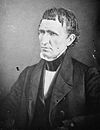 George McDuffie |
Jacksonian Democratic-Republican | March 4, 1823 – March 3, 1825 |
Charleston | Resigned to become Governor of South Carolina. |
| Jacksonian | March 4, 1825 – March 3, 1831 | |||
| Nullifier | March 4, 1831 – 1834 | |||
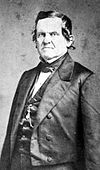 Francis W. Pickens |
Nullifier | December 8, 1834 – March 3, 1839 |
Edgefield | [data missing] |
| Democratic | March 4, 1839 – March 3, 1843 | |||
| Armistead Burt | Democratic | March 4, 1843 – March 3, 1853 |
Abbeville | [data missing] |
 James L. Orr |
Democratic | March 4, 1853 – March 3, 1859 |
Anderson | [data missing] |
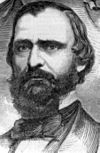 John D. Ashmore |
Democratic | March 4, 1859 – December 21, 1860 |
Greenville | Resigned. |
| Civil War and Reconstruction | December 21, 1860 – March 3, 1863 | |||
| District eliminated | March 4, 1863 | |||
| District re-established | March 4, 1875 | |||
 Robert Smalls |
Republican | March 4, 1875 – March 3, 1879 |
Beaufort | [data missing] |
 George D. Tillman |
Democratic | March 4, 1879 – July 19, 1882 |
Edgefield | Lost contested election. |
 Robert Smalls |
Republican | July 19, 1882 – March 3, 1883 |
Beaufort | Won contested election. |
 John J. Hemphill |
Democratic | March 4, 1883 – March 3, 1893 |
Chester | [data missing] |
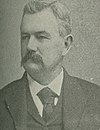 Thomas J. Strait |
Democratic | March 4, 1893 – March 3, 1899 |
Lancaster | [data missing] |
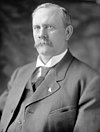 David E. Finley |
Democratic | March 4, 1899 – January 26, 1917 |
York | Died. |
| Vacant | January 26, 1917 – February 21, 1917 | |||
 Paul G. McCorkle |
Democratic | February 21, 1917 – March 3, 1917 |
York | [data missing] |
| William F. Stevenson | Democratic | March 4, 1917 – March 3, 1933 |
Cheraw | [data missing] |
 James P. Richards |
Democratic | March 4, 1933 – January 3, 1957 |
Lancaster | [data missing] |
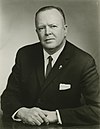 Robert W. Hemphill |
Democratic | January 3, 1957 – May 1, 1964 |
Chester | Resigned to become Judge of the United States District Court for the District of South Carolina. |
| Vacant | May 1, 1964 – November 3, 1964 | |||
 Thomas S. Gettys |
Democratic | November 3, 1964 – December 31, 1974 |
Rock Hill | [data missing] |
 Kenneth L. Holland |
Democratic | January 3, 1975 – January 3, 1983 |
Gaffney | [data missing] |
 John M. Spratt, Jr. |
Democratic | January 3, 1983 – January 3, 2011 |
York | Lost re-election. |
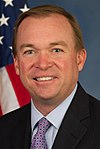 Mick Mulvaney |
Republican | January 3, 2011 – February 16, 2017 |
Lancaster | Resigned to become Director of the Office of Management and Budget. |
| Vacant | February 16, 2017 – June 20, 2017 | |||
 Ralph Norman |
Republican | June 20, 2017[2]– Present |
Rock Hill | Elected to finish Mulvaney's term. |
Historical district boundaries

Election results
2017 Special
| Party | Candidate | Votes | % | ±% | |
|---|---|---|---|---|---|
| Republican | Ralph Norman | 45,076 | 51.04% | -8.03% | |
| Democratic | Archie Parnell | 42,341 | 47.94% | +9.17% | |
| American | Josh Thornton | 319 | 0.36% | -1.74% | |
| Libertarian | Victor Kocher | 273 | 0.31% | N/A | |
| Green | David Kulma | 242 | 0.27% | N/A | |
| Write-In | Write-in | 65 | 0.07% | 0.0% | |
| Total votes | 88,316 | 100.00% | |||
| Majority | 2,836 | 3.23% | |||
| Turnout | 88,316 | 18.24% | |||
| style="background-color: Template:Republican Party (United States)/meta/color" | | [[Republican Party (United States)|Template:Republican Party (United States)/meta/shortname]] win | ||||
In popular culture
- In the first season of House of Cards, protagonist Frank Underwood represents the district in the United States House of Representatives as a Democrat.
See also
References
- ^ "Partisan Voting Index – Districts of the 115th Congress" (PDF). The Cook Political Report. April 7, 2017. Retrieved April 7, 2017.
- ^ a b https://www.nytimes.com/elections/results/south-carolina-house-special-election
- ^ "Special Election – U.S. House District 5, State House Districts 48 and 70 – June 20, 2017". South Carolina State Election Commission. Retrieved June 13, 2018.
- Martis, Kenneth C. (1989). The Historical Atlas of Political Parties in the United States Congress. New York: Macmillan Publishing Company.
{{cite book}}: Cite has empty unknown parameter:|coauthors=(help) - Martis, Kenneth C. (1982). The Historical Atlas of United States Congressional Districts. New York: Macmillan Publishing Company.
{{cite book}}: Cite has empty unknown parameter:|coauthors=(help) - Congressional Biographical Directory of the United States 1774–present
- Congressional districts of South Carolina
- Cherokee County, South Carolina
- Chester County, South Carolina
- Chesterfield County, South Carolina
- Darlington County, South Carolina
- Dillon County, South Carolina
- Fairfield County, South Carolina
- Florence County, South Carolina
- Kershaw County, South Carolina
- Lancaster County, South Carolina
- Lee County, South Carolina
- Marlboro County, South Carolina
- Newberry County, South Carolina
- Sumter County, South Carolina
- York County, South Carolina
